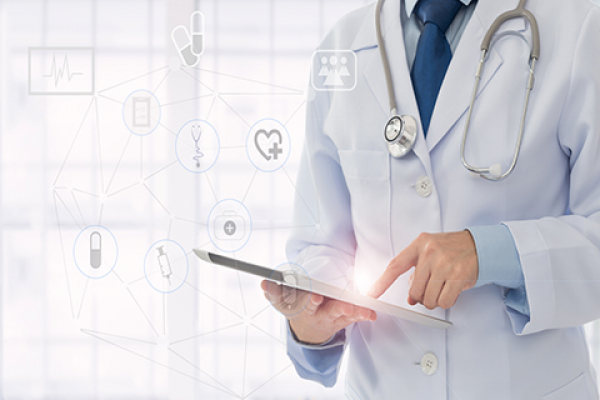
José Breñosa, a researcher at the Universidad Internacional Iberoamericana (UNIB), collaborates in a research that designs and proposes a patient health monitoring system with the help of the Internet of Things (IoT) and real-time cloud computing.
In the wake of the COVID-19 pandemic, social isolation and quarantines have become common practice around the world. Physicians and healthcare workers have access to large databases of medical information, as well as a variety of tools such as Artificial Intelligence (AI) and machine learning, to optimize patient treatment and outcomes. However, patient monitoring is one factor that has yet to benefit from technological advances.
Within hospitals, many patients, especially those who remain in intensive care units, require continuous monitoring of their health status. However, this type of care proves to be exhausting, especially in hospitals that have limited staff and, therefore, each professional must care for many patients at the same time. It becomes even more complicated when you are in the middle of a pandemic with overcrowded hospitals and there is a risk of medical staff becoming infected.
Therefore, in this study, an IoT-based patient health monitoring system is proposed, which collects real-time data on health indicators such as heart rate, blood oxygen saturation, and body temperature. This system can be expanded to include more parameters. The system consists of a physical device that collects and transmits data from sensors to a cloud storage system. For measurements, an ESP-32 microcontroller is used that connects to various sensors and transmits collected information wirelessly to the virtual storage system. In addition, a pulse oximeter is used to measure blood oxygen saturation and body temperature, as well as a heart rate monitor.
A highlight of this system is the web-based interface that allows healthcare professionals to access and view real-time data remotely, facilitating continuous and preventative monitoring of patients. This represents a breakthrough in remote health monitoring, as it provides professionals with instant access to vital information, enabling them to detect potential ailments before they become serious. It also eliminates the need for constant physical contact between doctors and patients, offering immediate and effective results.
To learn more about this fascinating study, click here.
To read more research, consult the UNIB repository.
The Universidad Internacional Iberoamericana (UNIB) offers a Master's Degree in Naturopathic Sciences. A program that prepares professionals to educate and guide on the different aspects, modality of naturopathy, techniques, lifestyles and natural therapies that are in harmony with this practice.